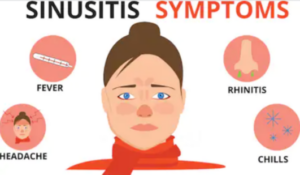Euwww, do you feel boogers stuck in the back of your throat when you swallow?
This gunky “snot” is stuck there for a reason & here’s what you can do to help prevent this from happening.
It’s a common problem: You suddenly feel this goopy clump in the back of your throat, even though you haven’t been eating.
You can tell it came from your nasal passages, and you know exactly what it is: boogers.
Call it snot if you will. Technically it’s mucus but in a more solid form.
The booger clump or snot is lodged in the back of your throat, and maybe some of it is still in the lower end of your sinus cavity.
You’re Faced with Two Choices
Should you try to swallow it, even though repeatedly swallowing isn’t budging the gunk?
Or should you cough it out, since it also feels like it’s positioned right at the point where it can be coughed out?
“Do whatever is comfortable,” says Dr. Stacey Silvers, MD, of Madison ENT & Facial Plastic Surgery in NYC, who is board certified in otolaryngology; one of her specialties is sinus surgery.
“Irrigating the nose is best,” she says. Irrigation with a neti pot will take a little time to prepare, and by then, you may have already swallowed the boogers. Drinking water will also help you swallow the gunk.

Neti pot. Shutterstock/kavzov
Why Snot Gets Stuck in the Back of Your Throat
“The mucus-producing glands that line the nasal cavity and sinus cavities produce mucus,” explains Dr. Silvers.
“Naturally cilia (hair cells in the nose) move the mucus to the back to clear.
“Excess mucus, especially if thick, can get stuck on the soft palate, high in the throat after clearing it from the nose.
“Cilia move mucus posteriorly [in the back]. When mucus is excessive it will come forward too.”
What are the boogers in the back of your throat made of?
Dr. Silvers says, “Mucus is an adhesive viscoelastic gel produced in the airway by sub-mucosa glands and goblet cells and is principally water. It also contains high molecular weight glycoproteins.”
The layman term is snot!
One need not have a cold or sinus infection to experience this problem.
However, a cold (nasal congestion, runny nose, stuffy nose) will increase the odds of it happening.
What further ups the chance is if “mucus is trapped in the sinuses and patients have poorly draining sinuses to start,” says Dr. Silvers.
After a cold seems to have resolved, “The thick mucus can occur for months. Shortened significantly with a sinus/nasal rinse.”
After the cold or sinus infection seems to have gone away, some residual mucus goop can still be trapped in the sinus cavities.
This can cause a mild headache that comes and goes, or a feeling of mild pressure behind the forehead, eyes and/or cheeks.
“Sinuses are inflamed or full of mucus,” says Dr. Silvers. “This will lead to sinus pressure.”

Image: Kaia Ugan
Before I tell you what Dr. Silvers recommends to help control or minimize these problems, here’s some fascinating information about boogers:
Your level of hydration affects whether boogers (mucus) are thin (drippy), thick (gel-like) or hard (clumpy, gunky).
Your nose produces a liter of mucus a day which “moistens the nose and the throat and starts the process of digestion,” says Dr. Silvers.
“The mucus helps to act as a filter for the nose. Infection (viral or bacterial), allergy and acid reflux all trigger an increase in mucus production.
“The mucus is helping to flush allergens and infectious material from the nose.
“In the case of reflux it acts to help lubricate the throat and vocal area to protect from stomach acid.
“Those people who have poor sinus drainage can get mucus caught in the sinuses that will eventually clear the sinuses in large ‘globs’ [boogers].”
Solutions to the Snot Stuck in the Back of the Throat
Dr. Silvers explains, “A daily saline sinus rinse (available over the counter) will significantly reduce these daily symptoms.”
A neti pot rinse method will help loosen things up in there. Below is an image showing basic nasal irrigation with a neti pot.

Neti pot. Aikhan, CC BY-SA 3.0
More sophisticated nasal irrigation devices are sold online.
“Thick post-nasal drip, mucus in the back of the nose, can be loosened by increasing hydration,” adds Dr. Silvers.
See if eight, 8-ounce glasses of water a day don’t improve matters.
Dr. Silvers also suggests sleeping with a humidifier in the room. NOTE: It works only when placed on a nightstand near your head.
Causes of Poorly Draining Sinuses in Absence of a Cold
• Anatomy (structural narrowing)
• Facial/nasal fracture in the past
• Benign polyps blocking sinus doors
• Allergies
The aging process and a rhinoplasty (nose job) do not cause poor sinus drainage.
“If the cause is allergy, allergy medicine will help,” says Dr. Silvers.
“If the cause is reflux [which can affect the nose], reflux medication can help.
“If the cause is infectious then time, or antibiotics, if necessary, will help.”
You will not choke on boogers or snot getting stuck in the back of your throat; though this is one of those “yucky” conditions, it amounts to a nuisance, not a medical urgency.


 An NYC expert in ear, nose and throat care,
An NYC expert in ear, nose and throat care, 







































